Finding the best products for low-porosity hair is not a walk in the park. As someone with 4c hair, I struggled to understand why my hair didn’t readily absorb hair products and find suitable ones. After intensive research, I discovered that I have low-porosity hair, and it was then that I began my quest for the best products in the market. Before we dive into the list of products that have worked for my hair type, let’s first understand the meaning of this term and the difference between low and high-porosity hair.
What is Low Porosity Hair?
The hair’s cuticle, the outermost layer that acts as a protective barrier, determines porosity. Low porosity hair has a tightly closed cuticle layer, which makes it resistant to moisture absorption. The tightly packed structure of the cuticles prevents water and products from penetrating quickly. While this may sound like a protective shield, it can also be challenging for those with low-porosity hair to moisturize their strands.
According to WebMed, low porosity hair refers to hair that does not easily or readily absorb water or hair products. This type of hair repels water during washing and can thus result in hair feeling dry and frizzy. To test if you have low porosity hair, observe how long it takes to wet and dry it. Besides, hair products tend to stay on the surface of your hair longer. For this reason, it is essential to find products specifically formulated for this type of hair.
High Porosity Vs. Low Porosity Hair
High Porosity Hair:
- Open Cuticles: Hair with high porosity has more open and raised cuticles, allowing moisture to be absorbed quickly.
- Prone to Frizz: Due to its absorbent nature, high-porosity hair can quickly become frizzy, especially in humid conditions.
- Quick Product Absorption: Hair products are absorbed rapidly, which may lead to over-moisturized or weighed-down hair if not appropriately managed.
Low Porosity Hair:
- Closed Cuticles: The cuticles of low-porosity hair are tightly packed, creating a barrier that hinders moisture absorption.
- Resistant to Moisture: Water and products may sit on the hair’s surface rather than absorbed, leaving the hair feeling dry.
- Buildup Prone: Product buildup is a common concern as it is challenging for products to penetrate the hair shaft.
Overview of the Best Low porosity hair products
As an Amazon Associate, Afro-chic Beauty earns a small commission from qualifying purchases at no additional cost to you. Click the orange highlighted links below:
Shampoo for Low Porosity Hair: Mielle Organics Pomegranate & Honey Moisturizing and Detangling Shampoo
Choosing the right shampoo ensures that subsequent products can penetrate the hair shaft effectively. Before applying any products, start with a clarifying shampoo to remove any residue or buildup on the hair. Choose a sulfate-free clarifying shampoo to remove product buildup without stripping the hair of its natural oils. Look for ingredients like tea tree oil or apple cider vinegar for effective cleansing.
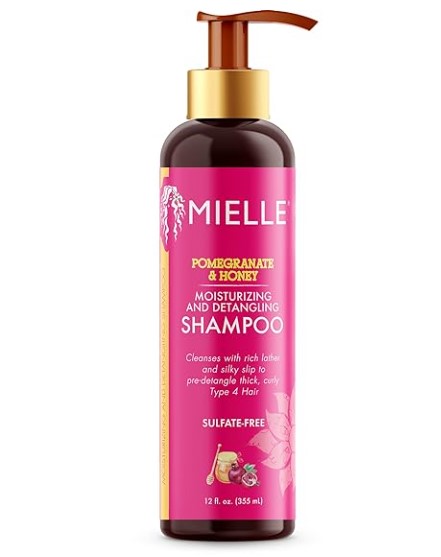
The Mielle Organics Pomegranate & Honey Shampoo contains natural ingredients such as honey, pomegranate extract, and babassu oil. These ingredients are known for their moisturizing and nourishing properties. Besides, this shampoo is sulfate-free, perfect for low-porosity hair, and specifically formulated for type 3 and 4 hair.
Deep conditioner for Low Porosity hair:
Redken all-soft conditioner
When it comes to deep conditioning, I always opt for deep conditioning treatments that can penetrate the cuticle layer. Applying heat, such as using a hair steamer or a warm towel, can help open the cuticles and allow the conditioner to work its magic.
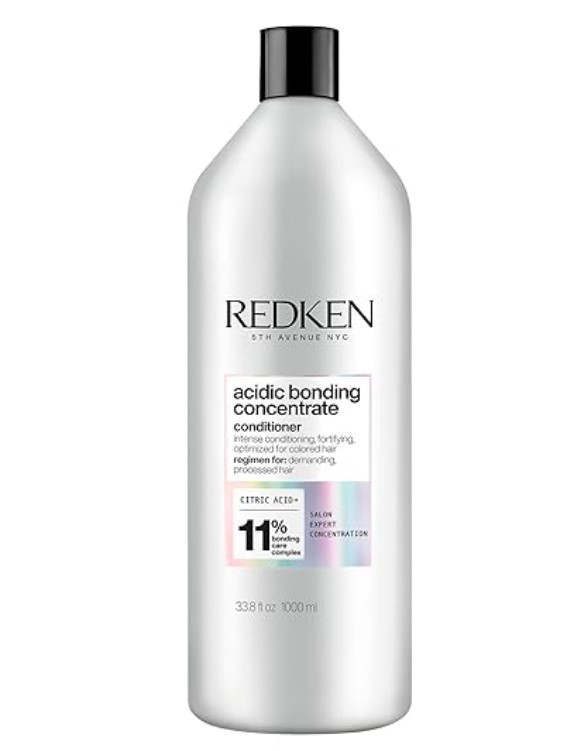
TGIN (Thank God It’s Natural) Miracle repair protein treatment
This treatment is formulated for type 3 and 4 hair to provide deep moisture. This Miracle Repair Conditioner leaves my hair feeling smoother and softer. This can especially benefit individuals with naturally curly or coiled hair textures.
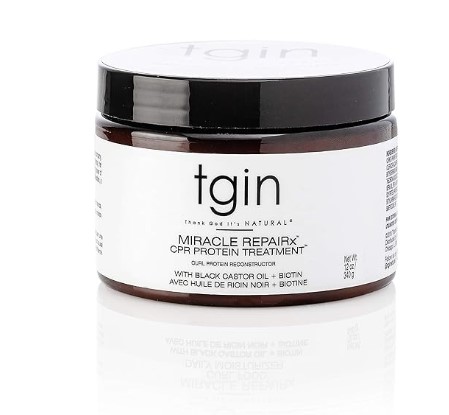
Leave-in conditioner for Low-porosity hair: Alikay Naturals Lemongrass Leave-In Conditioner
Lemongrass is known for penetrating the hair shaft, making it an excellent choice for low-porosity hair. This leave-in conditioner from Alikay Naturals helps with moisture retention and provides a refreshing scent. Avoid heavy, creamy products that may sit on the hair’s surface. Instead, use lightweight leave-in conditioners that can be easily absorbed without weighing down the hair.
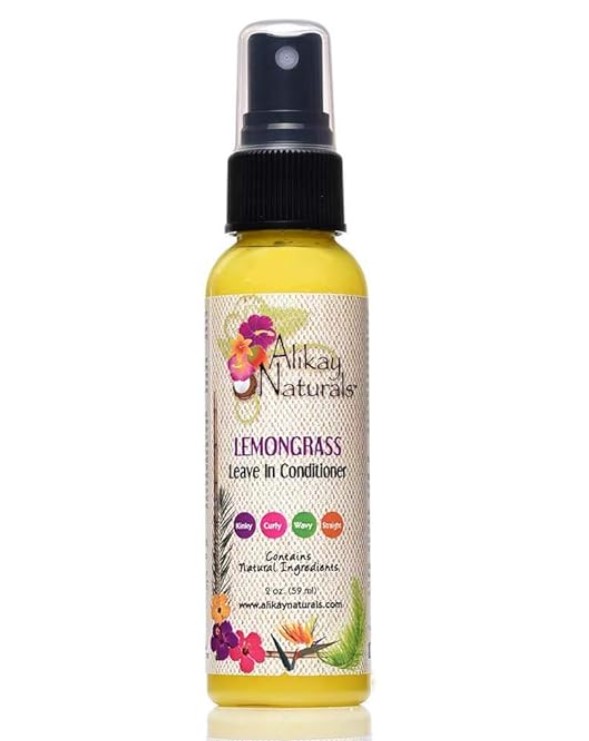
Protein Treatments: Aphogee Two-Step Protein Treatment
Aphogee is known for its intense protein treatment, especially the Two-Step Protein Treatment. It includes a liquid protein formula to strengthen the hair and a balancing moisturizer to restore moisture. This treatment is often recommended for damaged and chemically processed hair. Low-porosity hair can benefit from protein treatments to strengthen the hair shaft. Look for products containing hydrolyzed proteins to improve elasticity and reduce breakage.
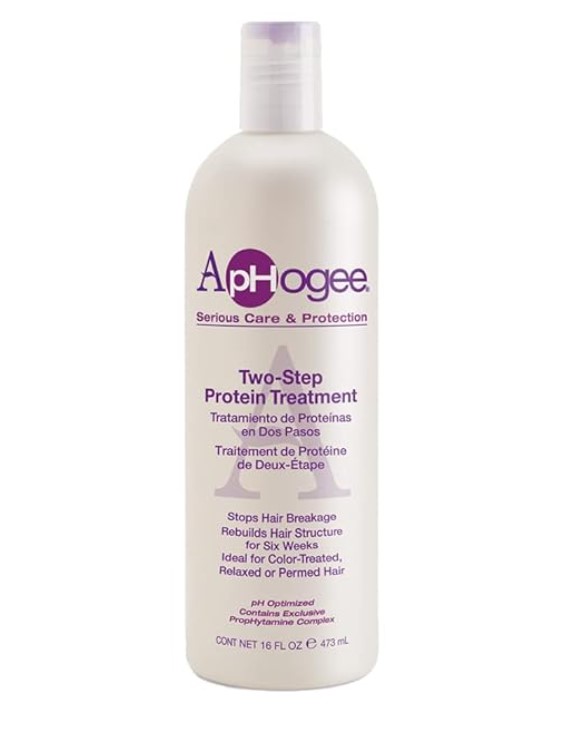
Best Oils for Low Porosity Hair: Oyin Handmade Hair Dew Daily Quenching Hair Lotion
This lightweight hair lotion is designed to moisturize low-porosity hair without causing buildup. To promote hydration, it contains nourishing ingredients like castor oil, olive oil, and aloe vera juice.
Key Takeaways
In conclusion, addressing the unique needs of low-porosity natural hair, particularly type 3 and 4 hair, involves a thoughtful selection of products and treatments. The emphasis should be on maintaining optimal moisture levels, preventing product buildup, and incorporating targeted protein treatments for strength and resilience. Choosing sulfate-free shampoos, lightweight leave-in conditioners, and deep conditioning products with penetrating ingredients is crucial for low-porosity hair.
Products like the Mielle Organics Pomegranate & Honey Moisturizing and Detangling Shampoo and TGIN Miracle Repairx Curl Protein Reconstructor are examples that cater to these specific needs, providing moisturization, detangling properties, and protein reconstruction. For effective treatments, incorporating methods such as steam treatments, hot oil treatments, and protein-rich options like Aphogee Two-Step Protein Treatment can significantly contribute to the health and vitality of low-porosity hair. Ultimately, the best products and treatments for low-porosity hair may vary from person to person, and experimentation is critical in finding the most suitable regimen.
